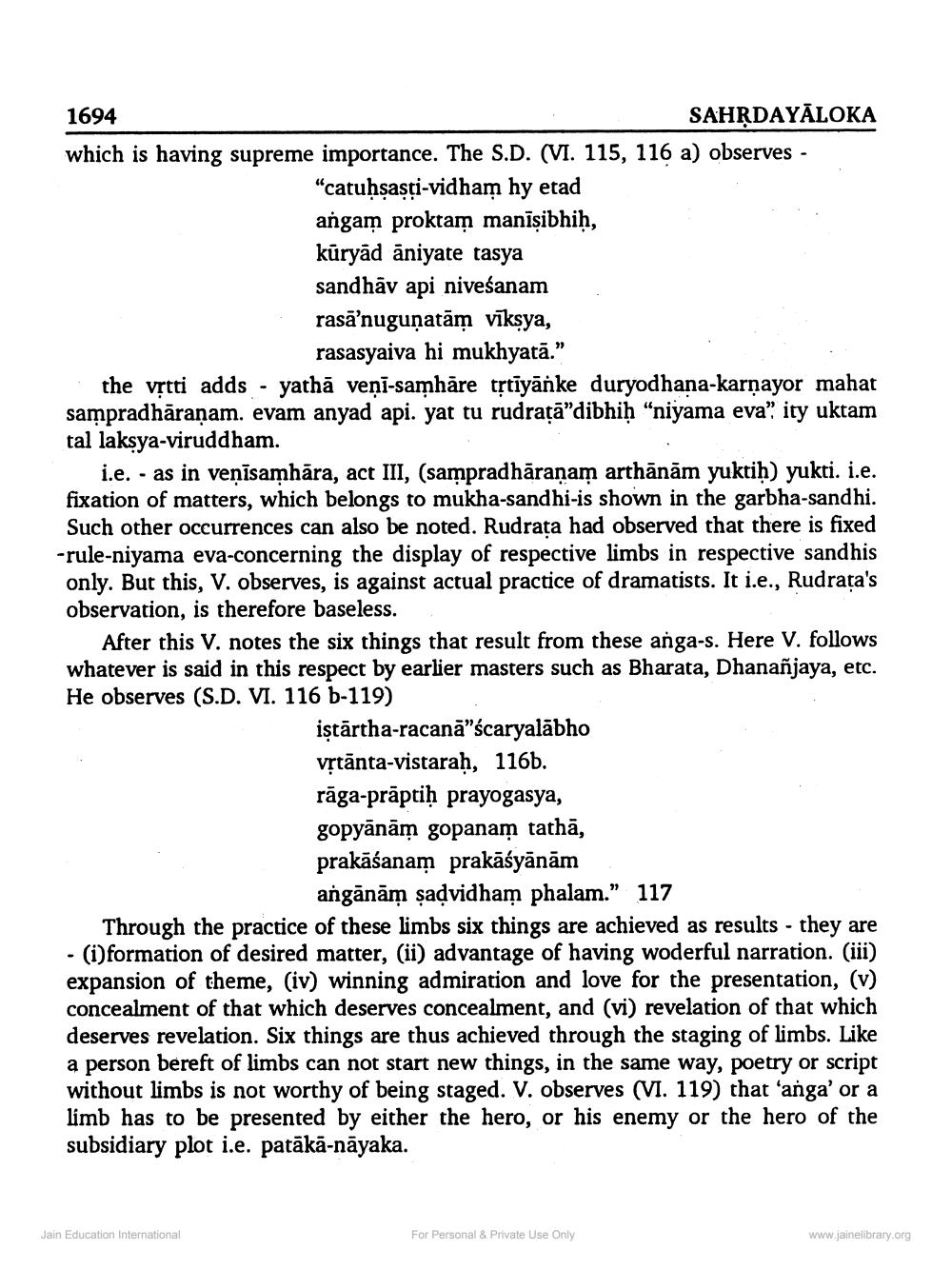________________
1694
SAHRDAYĀLOKA which is having supreme importance. The S.D. (VI. 115, 116 a) observes -
"catuḥsașți-vidham hy etad angam proktam manīșibhiḥ, kūryād aniyate tasya sandhāv api niveśanam rasā'nuguņatām vīksya,
rasasyaiva hi mukhyatā.” the vrtti adds - yathā veni-samhāre trtīyānke duryodhana-karnayor mahat sampradhāraṇam. evam anyad api. yat tu rudratā”dibhiḥ “niyama eva" ity uktam tal laksya-viruddham.
i.e. - as in veņīsamhāra, act III, (sampradhāranam arthānām yuktiḥ) yukti. i.e. fixation of matters, which belongs to mukha-sandhi-is shown in the garbha-sandhi. Such other occurrences can also be noted. Rudrata had observed that there is fixed -rule-niyama eva-concerning the display of respective limbs in respective sandhis only. But this, V. observes, is against actual practice of dramatists. It i.e., Rudrata's observation, is therefore baseless.
After this V. notes the six things that result from these anga-s. Here V. follows whatever is said in this respect by earlier masters such as Bharata, Dhanañjaya, etc. He observes (S.D. VI. 116 b-119)
istārtha-racana"scaryalābho vịtānta-vistaraḥ, 116b. rāga-prāptiḥ prayogasya, gopyānām gopanam tathā, prakāśanam prakāśyānām
angānām sadvidham phalam." 117 Through the practice of these limbs six things are achieved as results - they are - (i)formation of desired matter, (ii) advantage of having woderful narration. (iii) expansion of theme, (iv) winning admiration and love for the presentation, (v) concealment of that which deserves concealment, and (vi) revelation of that which deserves revelation. Six things are thus achieved through the staging of limbs. Like a person bereft of limbs can not start new things, in the same way, poetry or script without limbs is not worthy of being staged. V. observes (VI. 119) that 'anga' or a limb has to be presented by either the hero, or his enemy or the hero of the subsidiary plot i.e. patākā-nāyaka.
Jain Education International
For Personal & Private Use Only
www.jainelibrary.org




